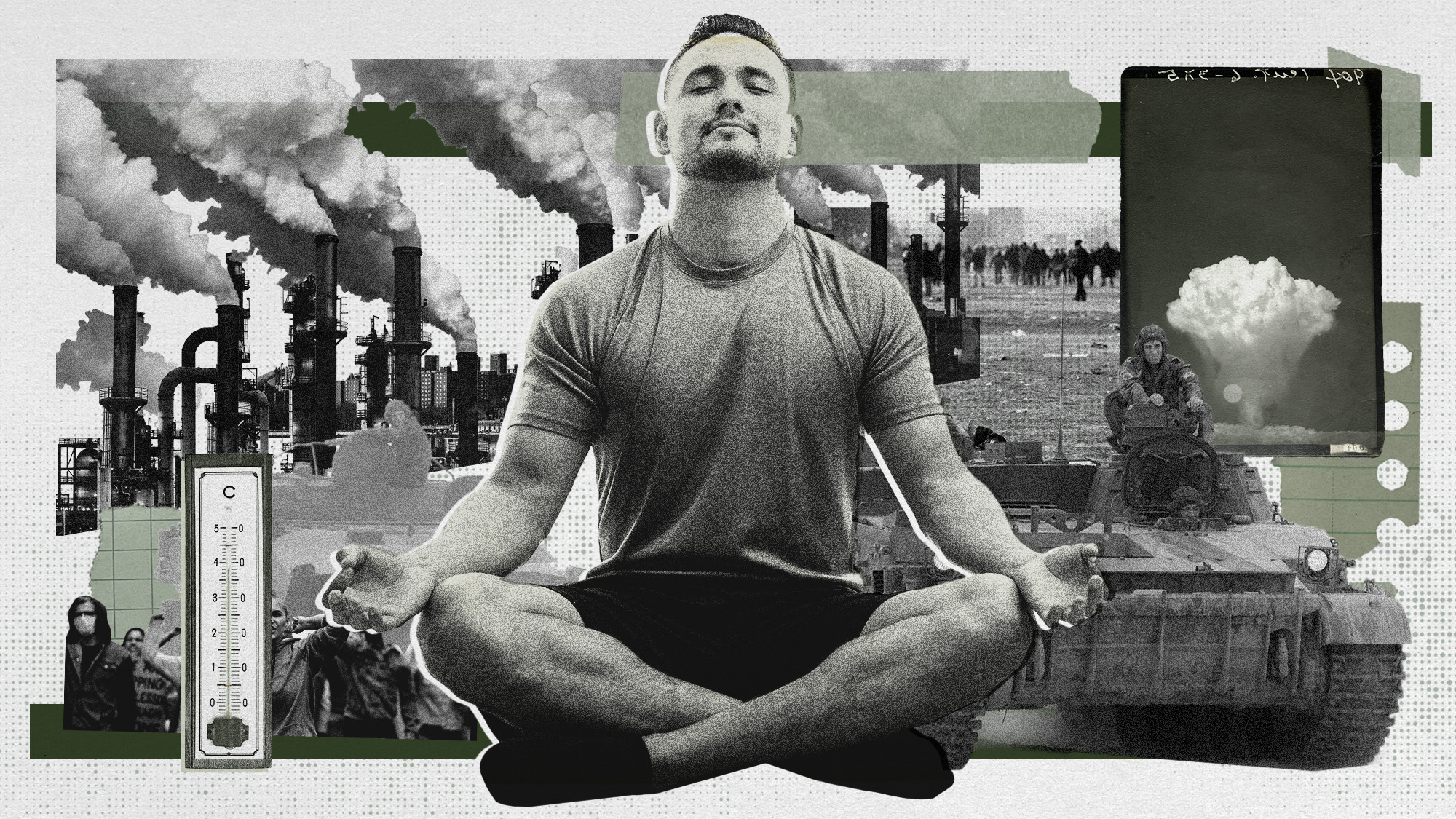The world is finally feeling less negative
Gallup's Global Emotions Report finds moods improving for first time in a decade, but are Ukrainians really less stressed than Brits?

A free daily email with the biggest news stories of the day – and the best features from TheWeek.com
You are now subscribed
Your newsletter sign-up was successful
If you feel less stressed, sad, angry and worried than a year ago, you're in good company, according to Gallup's latest annual report into the world's mood.
Even as the world faced warfare and economic crisis, the Global Emotions Report for 2023 found that the world's overall emotional health was in a better state, with negative emotions dipping for the first time in a decade, and positive emotions bouncing back to their pre-pandemic highs.
Ukrainian surprise
The study is a huge undertaking: Gallup's annual findings are based on nearly 146,000 interviews with people aged 15 and over in 142 countries and regions. The researchers asked participants about their positive and negative experiences on the day before the interview, and then use a formula to assign country-wide scores.
The Week
Escape your echo chamber. Get the facts behind the news, plus analysis from multiple perspectives.

Sign up for The Week's Free Newsletters
From our morning news briefing to a weekly Good News Newsletter, get the best of The Week delivered directly to your inbox.
From our morning news briefing to a weekly Good News Newsletter, get the best of The Week delivered directly to your inbox.
"Overall, the results point to a world that is, despite its manifold woes, more happy than fretful," the polling firm said. The Negative Experience Index declined for the first time since 2014, with all five negative emotions falling between 2022 and 2023, stress dipping the most of all.
Young people have consistently shown a higher-than-average positivity in the annual survey, so most of the overall improvement appears to have come from people aged 30 and older, a group that is usually more affected by economic turmoil and rising costs of living.
Some of the findings were unsurprising. Israelis, surveyed by Gallup two weeks after the Hamas attacks on 7 October, reported significant surges in negative emotions, with the majority experiencing worry (67%), stress (62%) and sadness (51%).
Following the signing of the Nagorno-Karabakh ceasefire agreement, Azerbaijan enjoyed the world's biggest fall in stress levels – dropping from 40% to 14% in 12 months.
A free daily email with the biggest news stories of the day – and the best features from TheWeek.com
But some findings are more surprising. For instance, even as their nation continued to be ravaged by war, only 32% of Ukrainians said they had experienced stress, while in Britain that figure was 38% and in the US it was 51%.
And despite news headlines from Latin America frequently focussing on turmoil and unrest, Paraguay, Panama, Guatemala and Mexico topped the positivity index. Julie Ray, editor of Gallup Global News, told Time magazine that the explanation is partly due to social and cultural resilience to challenges.
In those four countries "safety was an issue" for respondents, she said, "but you have this strong presence of social networks. And we have some level of cultural bias in how people answer these questions. They just tend to be positive."
'Good news caveat'
Last year was the hottest year on record, wars are raging, we've had "mass lay-offs in multiple industries", our aeroplanes are "falling apart in the sky while the people on board are falling apart too", said Fast Company.
So "how could people report feeling so positive when so many aspects of life on this planet are so observably terrible?", it wondered. "Perhaps", it "has something to do with the fact that the report is based on experiences", and "not observations".
The report is a "timely reminder" that it's "possible to appreciate the positive things in our own lives", and that it "might help" to "spend a little less time looking out of our digital windows onto the world".
As "trite" as it sounds, the answer to greater happiness "may be as simple as logging off", because as the "peak-pandemic era recedes further into the rear-view", more people "appear to be getting comfortable with being out in the world again".
Gallup itself pointed out that the "good news comes with a caveat" because the index and each of its components "remain higher than they were a decade ago".
Chas Newkey-Burden has been part of The Week Digital team for more than a decade and a journalist for 25 years, starting out on the irreverent football weekly 90 Minutes, before moving to lifestyle magazines Loaded and Attitude. He was a columnist for The Big Issue and landed a world exclusive with David Beckham that became the weekly magazine’s bestselling issue. He now writes regularly for The Guardian, The Telegraph, The Independent, Metro, FourFourTwo and the i new site. He is also the author of a number of non-fiction books.